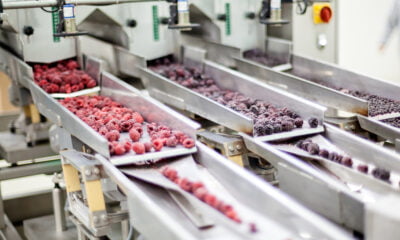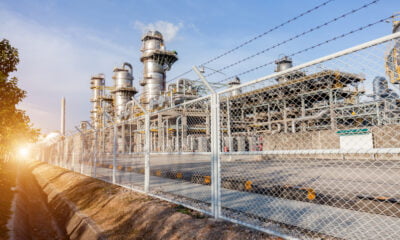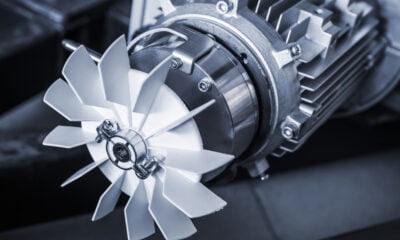

Environment
5 Environmental Benefits of Custom Manufacturing
Custom manufacturing, often known as on-demand manufacturing, only makes goods in smaller batches when customers need them. Although this may not appear to be the most lucrative way of production at first glance, the combination of short production cycles and high demand ensures that every item created will find a buyer. Since this reduces the potential for waste, it also helps you save money and space in your warehouse.
You can save money and space because developments in digital production technology and artificial intelligence systems immediately transmit designs to 3D printers upon receipt of orders, eliminating the need for any preliminary work required in conventional manufacturing. Custom manufacturing like Pacific Trail Manufacturing and others isn’t the final answer to the problems that arise from conventional production, but this is a positive development. Since custom manufacturing allows customers to order as much as they need, it’s now a boon to most small and medium-sized firms whenever they need it. The dramatic decrease in trash will also benefit the planet.
History Of Custom Saw Manufacturing
There was previously minimal leeway for manufacturers to use mass-produced, standard-issue machinery. This gear, which came in a few configurations, was intended to be a good enough choice for most people rather than the best choice for a select few. Fortunately, that’s no longer the case.
Today’s state-of-the-art manufacturing enhancements make it possible to personalize nearly every aspect of machinery. It ensures every business has access to the finest tools available. Machines or even individual pieces of equipment such as the ever-popular saw blade can be made from scratch using a custom-made metal machine.
In the lumber and paper product industries, as well as others that operate with large amounts of specialty materials, increased customization levels have been greatly sought. The expanding variety of custom manufacturing choices for the timber product business is one of the most interesting advancements in this field. They make furniture and hardwood flooring, which necessitate a variety of high-quality saws to handle the various cuts and species of wood involved in each project.
Getting To Know Custom Saw Manufacturing
Agricultural, automotive, production, and carpentry are just some of the manufacturing sectors that benefit from saw blades. A standard saw is adequate for most cutting needs, but a specialized one makes all the difference in precision work. With a custom saw, you can easily make clean, precise cuts and remove measured little pieces of wood.
Using a tailor-made saw has additional benefits. But first, let’s define a custom saw. Why should you invest in custom saw production for your business’s cutting needs? That’s the subject of this piece. Continue to find out more.
A custom saw is a blade that has been customized and tailored per criteria and specifications to produce more precise results than would be possible with a standard saw. Depending on the task, a bespoke saw may be one of several distinct varieties.
Getting Started With Custom Saw Manufacturing
There are many different uses for saw blades across many other industries. As a result, saw blades must meet the specific needs of each application. Saw blades have several benefits in various sectors, including the construction of furniture and hardwood floors, agriculture, and the manufacturing of cars. For this reason, saw blades must be tailored to each application to guarantee satisfactory results.
It all starts with the question of what exactly is being cut. The first step in creating a custom-made saw is determining whether the material is wood, plastic, or metal. After that, you must decide what kind of cutting you want to do. Take wood as an example—if you need to make a cut perpendicular to the grain, a ripping blade is what you need. Nonetheless, a crosscut blade is preferable if the cut is against the wood grain. Blades for either a circular or band saw can be used for ripping or crosscutting.
It’s important to note that the sharpness of a cut is typically determined by the number and shape of the teeth. Cutting using a crosscutting blade is more precise because its teeth are closer together, and its gullet is narrower than a ripping blade. Depending on the task, a combination blade, a hybrid of the two primary types of blades, can produce satisfactory results.
When making a custom-made saw, it’s essential to have detailed information regarding the intended use and outcome. Saws that meet the most exacting standards can be made with the help of high-quality raw materials and a rigorous production process that eliminates chipping and burrs.
Why Shift To Custom Saw Manufacturing?
In the past, only huge corporations could afford to buy custom-made machinery, but nowadays, even small enterprises have the option of having their custom-made saws made. Investing in high-quality saw blades for your own use can have far-reaching effects on your business’s foundation and customer satisfaction.
If you own a business that uses saw blades, you should contact (or visit) a local client saw maker to find out what they can do to help your company now.
Environmental Benefits Of Custom Saw Manufacturing
Very few people may be aware of this, but it’s essential information for companies seeking improvement. Renewable production methods and ecologically friendly activities are the cornerstones of custom manufacturing. These measures lessen the factory’s negative influence on the environment, bring about good change, and inspire similar initiatives at other companies.
Here’s a rundown of how custom manufacturing affects the environment:
1. Custom Manufacturing Reduces Water Consumption
Many manufacturing processes require using water for various purposes such as cleaning, cooling, diluting, and sanitizing. Custom manufacturers have access to water recycling methods to reduce the amount of wastewater released to sewers and storm drains. They also perform water audits by water providers and water resources consultants who provide even more in-depth recommendations. Custom manufacturers also use smaller-scale water conservation measures, including installing low-flush toilets and sensor-equipped water taps.
2. Custom Manufacturing Utilizes Energy Audits
An energy audit is used to identify which systems and processes are consuming the most power. Important data like this helps zero in on where enhancements should be made. Custom manufacturers find the worst energy wasters in their manufacturing to start cutting back on their overall energy costs.
Performing an energy audit is ideal for cutting down on yearly energy expenditures. Custom manufacturers recoup their initial investment in energy efficiency measures, thanks to the savings they create. They make modifications on a smaller scale such as upgrading or adding insulation or switching to more energy-efficient light bulbs or lighting with motion sensors. Generally, reducing energy consumption can result in a reduced environmental impact.
3. Custom Manufacturing Uses Recycling Methods
Custom manufacturers examine product scraps and byproducts to see if they may be put to productive use in the factory rather than being thrown away. When this isn’t possible, they make sure to recycle anything that can be recycled.
One way they do this is by attempting to use creative thinking and seeing if any nearby universities or businesses are interested in taking in the factory’s unwanted materials. Sawdust and waste plastic may interest local companies. At the same time, students may be interested in scrap metal for use in art projects or prototype development.
4. Custom Manufacturers Can Easily Replace Aging Equipment
Energy is wasted due to the inefficiency of older machines. Custom manufacturers immediately replace worn-out machinery with newer, more efficient ones if repairs and part replacements don’t produce the desired results.
In addition to decreasing energy use, the efficiency gains from upgrading to a newer model could also shorten product turnaround times or do away with stoppages. They use energy audits to identify the machinery and procedures that could benefit most from upgrades.
5. Custom Manufacturers Decrease Pollutants For Tax Incentives
Several national and state governments incentivize businesses that use environmentally friendly production processes. Even though there may be substantial preliminary expenses, there are several incentives offered to custom manufacturers to motivate them to start their green journey. Because governments don’t want major polluters located within their borders, factories must adopt environmentally friendly processes.
The Verdict
A positive environmental impact is an excellent motivator for manufacturers to pursue custom manufacturing. Still, this goal isn’t achieved if it doesn’t boost profits. Many people rely on your company for their livelihood, so you can’t afford to make a significant loss by switching to eco-friendly practices.
However, there are several reasons why switching to custom manufacturing can potentially save you money in the long run. Custom manufacturing reduces water consumption, utilizes energy audits, uses recycling methods, easily replaces aging equipment, and decreases pollutants. Technological advancements have substantially enhanced custom manufacturing techniques, and the public’s purchasing habits are more affected by environmental considerations.
Because of this, and because governments are willing to push manufacturers to go green, transformation may be achieved while also boosting profitability, which is beneficial in the long run. Although becoming environmentally conscious isn’t an overnight process, it’s possible to take the initial steps toward that goal right now. Consider the ideas mentioned here as you plan and prepare.






























